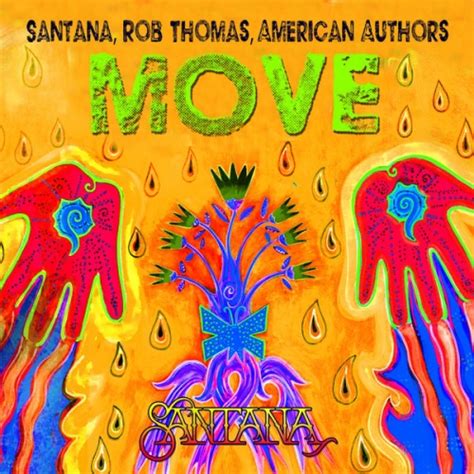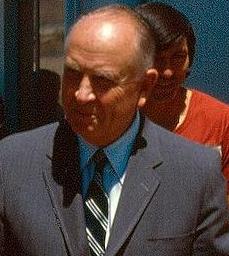A Quote by Edward Bulwer-Lytton, 1st Baron Lytton
There are two lives to each of us, the life of our actions, and the life of our minds and hearts. History reveals men's deeds and their outward characters, but not themselves. There is a secret self that has its own life, unpenetrated and unguessed.
Related Quotes
To exist in this vast universe for a speck of time is the great gift of life. Our tiny sliver of time is our gift of life. It is our only life. The universe will go on, indifferent to our brief existence, but while we are here we touch not just part of that vastness, but also the lives around us. Life is the gift each of us has been given. Each life is our own and no one else's. It is precious beyond all counting. It is the greatest value we can have. Cherish it for what it truly is..... Your life is yours alone. Rise up and live it.
The mystery of the spiritual life is that Jesus desires to meet us in the seclusion of our own heart, to make his love known to us there, to free us from our fears, and to make our own deepest self known to us Each time you let the love of God penetrate deeper into your heart it leads to a love of ourselves that enables us to give whole-hearted love to our fellow human beings. In the seclusion of our hearts we learn to know the hidden presence of God; and with that spiritual knowledge we can lead a loving life.
Not by lamentations and mournful chants ought we to celebrate the funeral of a good man, but by hymns; for, ion ceasing to be numbered with mortals, he enters upon the heritage of a diviner life. Since he is gone where he feels no pain, let us not indulge in too much grief. The soul is incapable of death. And he, like a bird not long enough in his cage to become attached to it, is free to fly away to a purer air. . . . Since we cherish a trust like this, let our outward actions be in accord with it, and let us keep our hearts pure and our minds calm.
History repeats itself only in that, from afar, we all seem to lead exactly the same life. We are all born; we all spend time here on earth; we all die. But up close, we have each walked down our own separate paths. We have stood at our own lonely crossroads. We have touched the lives of others at crucial points, for better or for worse. In the end, each of us has lived a unique life story, astounding and complicated, a story that could never be repeated.
It's so easy in life for us to receive blessings, many of them almost uncounted, and have things happen in our lives that can help change our lives, improve our lives, and bring the Spirit into our lives. But we sometimes take them for granted. How grateful we should be for the blessings that the gospel of Jesus Christ brings into our hearts and souls. I would remind all of you that if we're ever going to show gratitude properly to our Heavenly Father, we should do it with all of our heart, might, mind, and strength-because it was He who gave us life and breath
For each of us, then, the challenge and opportunity is to cherish all life as the gift it is, envision it whole, seek to know it truly, and undertake-with our minds, hearts and hands-to restore its abundance. It is said that where there's life there's hope, and so no place can inspire us with more hopefulness than that great, life-making sea-that singular, wondrous ocean covering the blue planet.
The principle of self-reliance grows out of a fundamental doctrine of the Church, that of agency. Just as each individual is accountable for his choices and actions in spiritual matters, so also is he accountable in temporal matters. It is through our own efforts and decisions that we earn our way in this life. While the Lord will magnify us in both subtle and dramatic ways, he can only guide our footsteps when we move our feet. Ultimately, our own actions determine our blessings or lack of them. It is a direct consequence of both agency and accountability.
Even though its common knowledge these days, it never ceases to amaze me that all the richness of our mental life - all our feelings, our emotions, our thoughts, our ambitions, our love life, our religious sentiments and even what each of us regards us his own intimate private self - is simply the activity of these little specks of jelly in your head, in your brain. There is nothing else.
"In each of our lives Jesus comes as the Bread of Life - to be eaten, to be consumed by us. This is how He loves us. Then Jesus comes in our human life as the hungry one, the other, hoping to be fed with the Bread of our life, our hearts by loving, and our hands by serving. In loving and serving, we prove that we have been created in the likeness of God, for God is Love and when we love we are like God. This is what Jesus meant when He said, "Be perfect as your Father in heaven is perfect.
Life is sacred. Life is art. Life is sacred art. The art of sacred living means being a holy actor, acting from the soul rather than the ego. The soul is out of space and time and hence always available, an ever-present potential of our being. It is up to each of us to celebrate and to actualize our being and to turn each meal, conversation, outfit, letter, and so on, into art. Every mundane activity is an opportunity for full authentic self-expression. The soul is our artistic self, our capacity for transforming every dimension of our lives into art and theater.
Human behaviour reveals uniformities which constitute natural laws. If these uniformities did not exist, then there would be neither social science nor political economy, and even the study of history would largely be useless. In effect, if the future actions of men having nothing in common with their past actions, our knowledge of them, although possibly satisfying our curiosity by way of an interesting story, would be entirely useless to us as a guide in life.






































